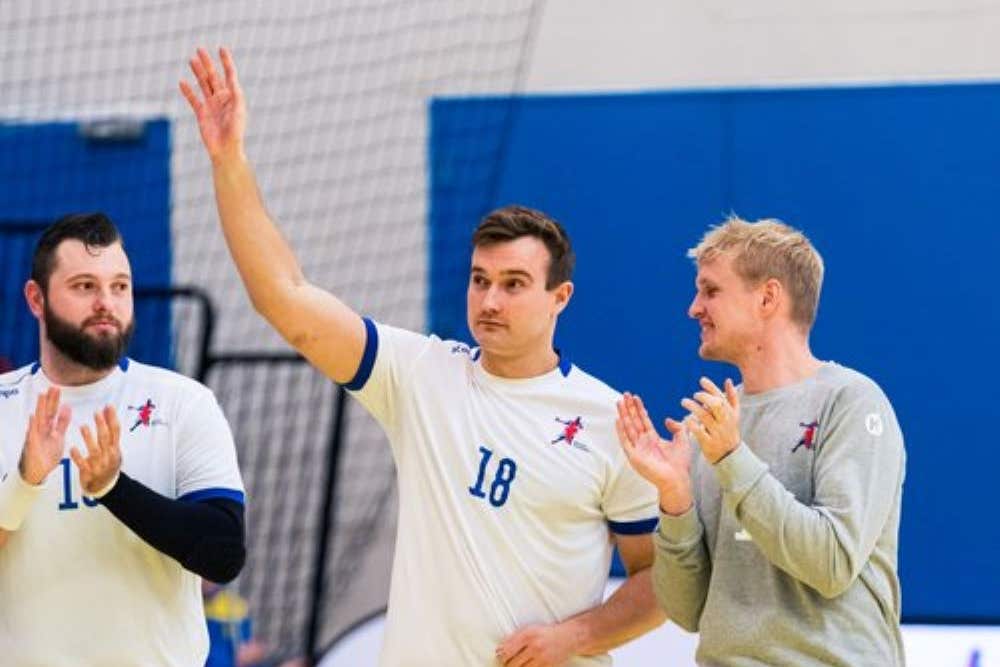Ben Tyler: The handball star and trainee doctor out to ‘transform’ mental health
This year’s Mental Health Awareness Week is promoting the benefits of movement.

Great Britain handball star and trainee doctor Ben Tyler is on a mission to help tackle the UK’s mental health crisis by prescribing a passion for sport.
Tyler, who has played handball at a national level from the age of 16, is in his final year of GP training in Chesterfield and has seen firsthand the difference sport and exercise can make to adults and young people who are struggling.
The theme of this year’s Mental Health Awareness Week, which England Handball is celebrating, is movement, and Tyler told the PA news agency: “As a GP, you see so many people who are coming to you at a point where they’re feeling really low and awful and you explore why that’s happened.
“And, quite commonly, two or three years previously, things such as hobbies and sport have fallen away, or for some people they’ve never had those.
“Quite early on in practising, I realised the best thing I could do would be to prescribe someone a passion, and if I could say, ‘Look, you’re going to love sport’, and if they bought into that and trained every week, their mental health would be transformed.
“That’s something I find quite powerful. There’s all the medicine we learn, all the tablets we can give, but actually what can do people the most good is getting involved in a team sport or any type of sport.”
As part of his training, Tyler spent several months working in child and adolescent mental health services (CAMHS), where the demand for help has rocketed.
“It was a really eye-opening experience for me,” he said. “You can be in quite a bubble. You read all these stories in the newspaper and you think it’s only a few people, but you realise how common mental health problems are for young people now. It’s really sad.
Quite early on in practising, I realised the best thing I could do would be to prescribe someone a passion
“Sport isn’t pushed as much in schools any more I don’t think. For a lot of people, it’s the first thing that falls away, or their confidence goes and they don’t like to participate in PE, and then they don’t have that outlet and amazing experience for their mental health.
“One example that sticks with me, there was a girl who had played quite high-level sport and then there had been domestic violence, which had happened to her as well. Sport had been the thing that fell away.
“So it was how we could help her, be in a safe place of course, but also how could we get her back playing sport because her whole support system had fallen away. It’s not textbook medicine, it’s how can you work imaginatively to help people and help them enjoy life again.”
Tyler’s personal sporting passion lies with handball, which he is hoping to help grow in the UK through coaching now his playing career is winding down, and he believes there is a growing awareness within the medical profession of the benefits of exercise for not just physical but mental health.
“It’s definitely becoming more of a thing,” he said. “Within GP surgeries now, most of them have social prescribers, who are trained in what the local area offers to help people engage. That’s definitely something we’re seeing is really beneficial.
“If you ask any doctor, they’ll say of course exercise is a good thing, but it can be hard within the time pressure to actually create a meaningful dialogue with a patient to get them to buy into it or understand or want to do that.
“If you’ve got someone who’s overweight, someone who’s isolated, who’s got no confidence, for them it can be really hard – you’re telling them to go running or play handball and they can’t even leave the house.
“It’s creating that plan to get them there. One of the things I love about being a GP is getting to know people. Maybe I won’t mention it in the first consultation, but by the fourth or the fifth that’s all we’ll be talking about.
“I don’t think we’ve gone far enough yet in what GP practices can do to help promote physical activity. That’s definitely something I want to pursue, but also I want to get into schools and coach handball and show it to loads of different people, and hopefully give more people a passion.
“Because, although sport is great once people come to us, it can be even better to make people love sport from the age of five, six, 10 and never stop it.”
Bookmark popover
Removed from bookmarks